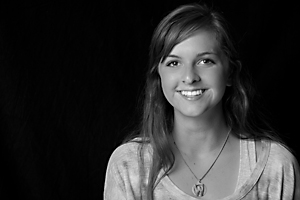The concept is vague, so I’ll put it in perspective: Imagine the entire human population in this one big room. The room is completely dark and you have no idea who or what surrounds you. The only thing you have in this unfamiliar room is a single “light.” It doesn’t matter what the “light” is, it could be everything from a lantern to a strobe light, as long as you let the light shine. If one person turns on their light, the room is still dark. If half the room switches their light on, half the room is still dark. It’s only when everybody turns on their light that the room is completely lit and everyone is seen.
I don’t know how religiously accurate my metaphor is, and I suppose a Quaker might find
corrections, but to me that is not important. Anyone from any walk of life could take
something from this. Muslim, Christian, poor, rich–it doesn’t matter because all people must discern good from bad. Standing up for an unpopular kid or being the first to apologize–that comes from you.
The other day I was flipping through Newsweek, and there was a headline that caught my attention, “Hawa’s Haven.” The article is about a woman named Hawa Abdi. Let me tell you, Hawa’s light is really on.
She is a Somalian doctor who has established a clinic for internally displaced people. Well, one day “Hawa’s Haven” came under siege by the Hizbul Islam, the latest from a long line of corrupted militia. The Hizbul were demanding a surrender of Dr. Hawa’s land and clinic simply because she was a woman.
Dr. Hawa wasn’t going to take that unjustly, even from a group of armed men, so she refused to back down. “So they’ll shoot me!” Hawa said. “At least I will die with dignity.”
A week later 750 men surrounded the clinic and opened fire. Children and women were not spared. Hawa was taken captive. Before she was confined, Hawa got in touch with the media, and within days, the militia was forced to let her reopen her clinic. Hawa seemed to have made an impact even on the blood-lusting regime. Looking an Islamic gunman in the eye, Hawa calmly asked, “I do something for my people and country. What have you done for your country?”
This “Inner Light” can not be summed up in a few quick sentences. It is a concept that no amount of philosophers, scientist or popes can agree upon or put to rest. Yet, its mystery makes it all the more enduring. Is it a “soul,” a “spirit” or a “conscience?” You can’t put a label on this “light,” but it is there and it influences us in our everyday lives. Imagine if everyone switched the on button. If all people would aspire to do the right things, imagine the kind of unity this country…no…this world…would have.
Shine On,
Wynne




